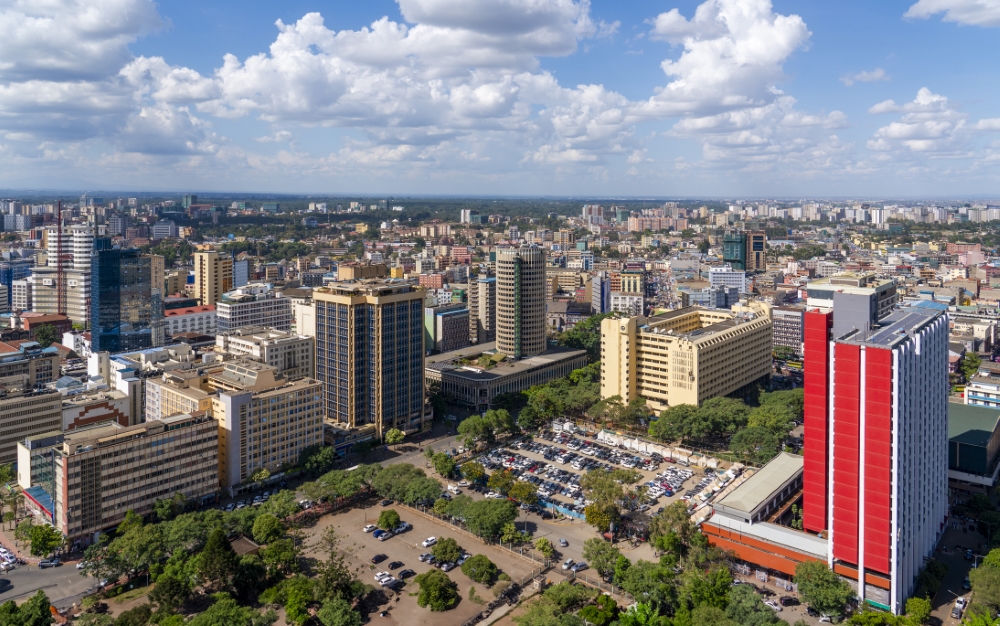Building out the AI infrastructure and workforce in Africa proves to be an ambitious and necessary undertaking.
by Kelly Barraza
The spread of generative AI across the continent of Africa has been providing solutions in retail, telecommunications and heavy industry for years, with Kenya, Nigeria and South Africa emerging as leading AI tech and innovation hubs in sub-Saharan Africa in particular.
Practical applications of AI technology in Africa have included supporting transportation, food and medicine delivery, agricultural and workforce development. Some leaders have been able to alchemize the resources and minds Africa has to offer.
Putting Africa on the AI Map
Alexander Tsado, co-founder, COO and CPO of Ahura AI, a San Francisco-based AI tutoring company that focuses on upskilling workers, has a long history in the AI sector. Tsado, a former Nvidia product manager, is also a co-founder and board member of Alliance4ai, a Johannesburg-based organization that supports Africans and African Americans getting involved in the AI industry.
In 2019 Alliance4ai developed a project listing 100 AI startup companies in Africa, literally and figuratively putting Africa on the map for AI. The impact was fast and exciting.
“It was a massive visual representation that led to a shift in mindset,” Tsado says. “Before then it was hard to have the conversation about AI in Africa with large companies in Europe and the U.S. But with the article, people were like ‘Wow — there are at least 100 AI companies in Africa?’ ” Interested entities such as the Rockefeller Foundation, the UN and UNICEF came forward to connect with those first 100 highlighted AI startups in Africa. As of 2025, the number of AI companies in Africa is estimated at 2,400.
Speaking to the differences between AI models being built in Africa and those being made elsewhere, Tsado discussed what could make African AI different. It all boils down to choices. He describes an in-person workshop in Kenya where the audience was untrusting of AI, “scared of the way that AI is built in the USA — increasing efficiency and productivity — taking away jobs and tools. We try to placate the message.
“I think about mobile tools for health workers,” he says. “If you are able to make a primary health worker smarter with the tool they are using, we will get more work.” He say supplementing individuals with AI tools can allow for more jobs in fields like teaching and support vital industry sectors like transportation and agriculture.
An early follower of Zindi, a South African startup that hosts a network of over 75,000 Africa-based data scientists in data science-based competitions, Tsado says the company has proved to be a runaway success in solving the talent problem for AI in Africa and is even leveraged by some African governments for finding machine learning-driven solutions to real-life problems.
When asked about reasons why a tech company would bring their business to Nairobi, the “Silicon Savannah” of the African continent, Tsado notes a wide range of natural geographic resources like forests and beach and a vibrant tech-forward “melting pot” community with interesting solutions that aren’t elsewhere in the world. “Nairobi is a perfect mix of work and play,” he says. “You have all sorts of business from fintech to agro, insurance, across the board.”
Nairobi is recognized as a leader in agricultural, e-commerce and fintech industries and as a tech-friendly haven for startups. The Startup Bill of 2022 was approved in July 2024 by the Kenyan National Assembly, providing tax incentives, simplifying credit access and establishing a platform for startups to receive needed resources. According to Startup Genome’s 2025 Global Startup Ecosystem Report for Nairobi, Kenya startups secured $638 million in funding in 2024.
Partnering AI with People
Execo, a legal services provider with four locations in Kenya, uses generative AI to deliver contracting, market and operational support solutions to its clients. Execo CEO Patrick Linton and Chief Revenue Officer Evan McElwain (co-founder of Africa AI, acquired by Execo in 2023) spoke to me about the processes and goals of running a tech-focused company in Kenya.
Asked if there was value in creating and investing in the skills of a “futureproof” workforce, Linton says, “Absolutely. But ‘futureproof’ doesn’t mean teaching everyone prompt engineering. It means building teams who can learn fast, adapt faster and apply AI to real business problems. That’s the muscle we’re training.
“A core belief of ours is that generative AI supercharges people, rather than replacing them,” Linton says. “For instance, we use generative AI to do the frontline work with digitizing or redlining contracts, but then we hire and train specialized lawyers in Kenya to review and ensure accuracy of the output. This means we can deliver better outcomes, faster, for our customers.”
McElwain has recommendations for companies looking to bring their tech ventures to Africa and Kenya specifically.
“Invest in local relationships early, whether it’s with training centers, universities or community leaders,” he says. “It’ll make your hiring stronger and your impact deeper. Kenya has a fast-learning workforce, but success here depends on being present, listening and building trust. Also, I’d encourage you to start with a small core team and grow as you learn. Kenya rewards hands-on leadership. You’ll move faster if your decision-makers are on the ground. We started lean, focused on quality and scaled once we knew where the talent and systems were strongest.

“Kenya has a fast-learning workforce, but success here depends on being present, listening and building trust.”
— Evan McElwain, Chief Revenue Officer, Execo
“Finally,” he says, “focus on local nuances that impact your workforce. For example, in Nairobi traffic is notoriously bad and commuting long distances can get expensive. We set up offices closer to where our team members live, which adds a lot of convenience for them and helps drive retention.”
McElwain says offshoring opportunities are abundant in Africa, though a key challenge is the impracticality to “copy-paste Western playbooks” in the African business market.
“Winning here requires local fluency and long-term skin in the game. You also don’t have a long history of outsourcing in Kenya compared to other more mature markets like India or the Philippines,” McElwain says. “This means to be successful here you have to invest more heavily in training and providing exposure to team members here to help them meet their potential.”

